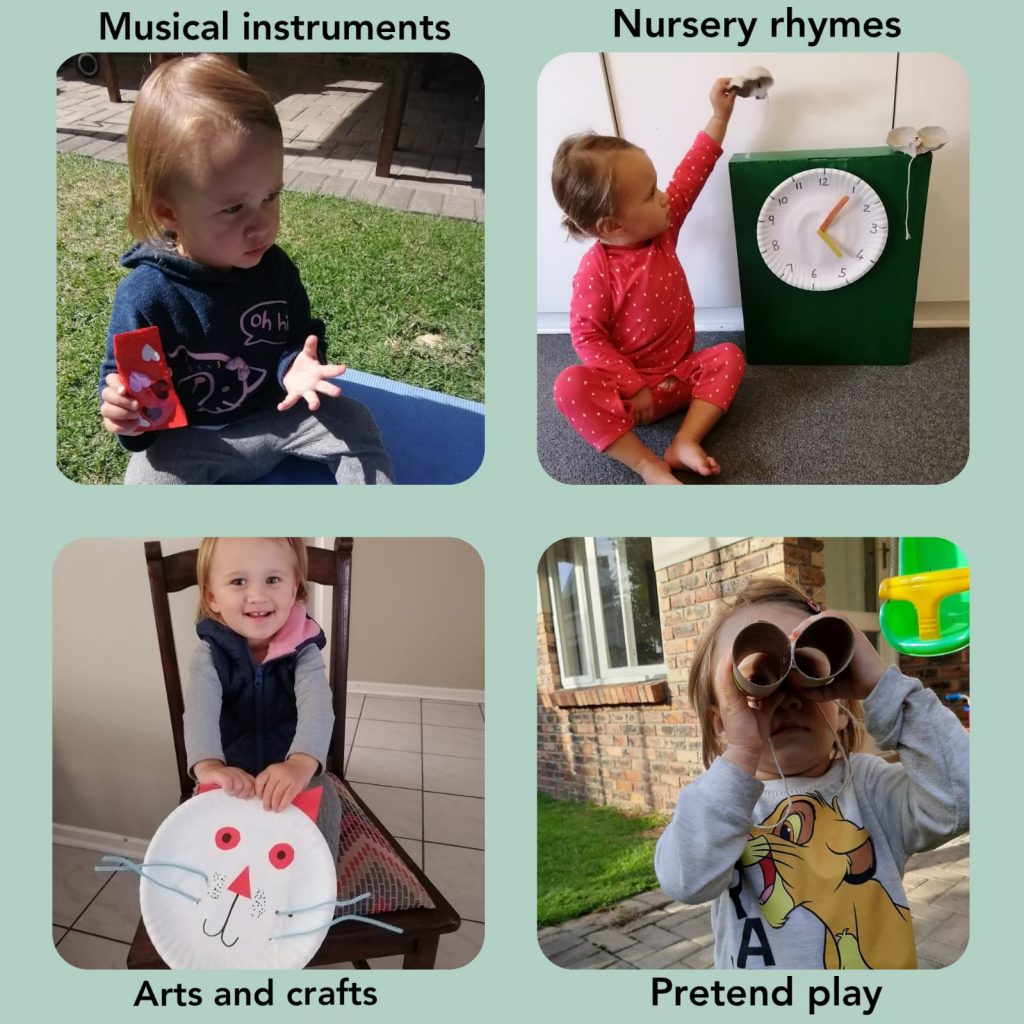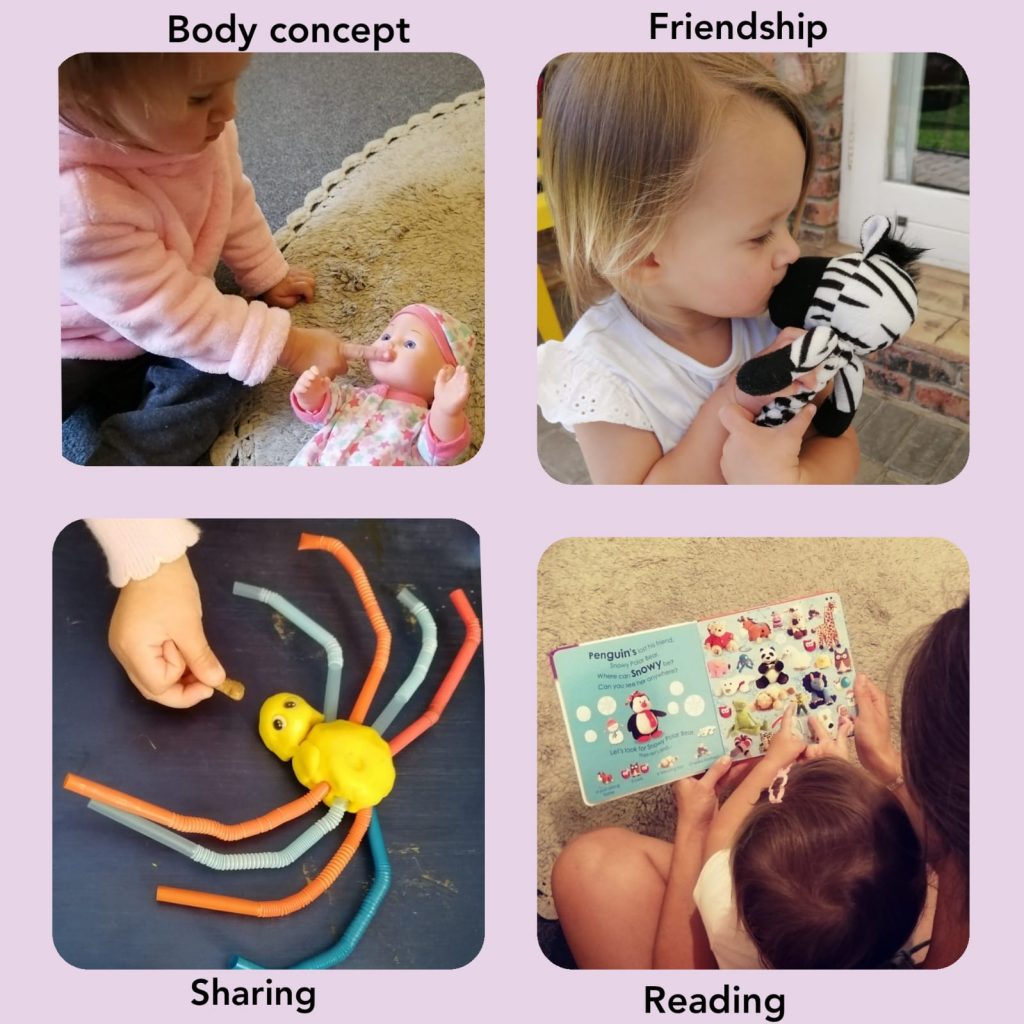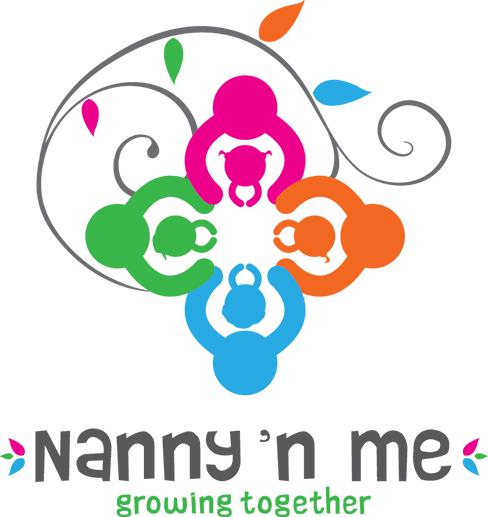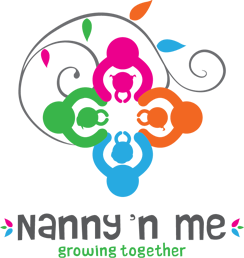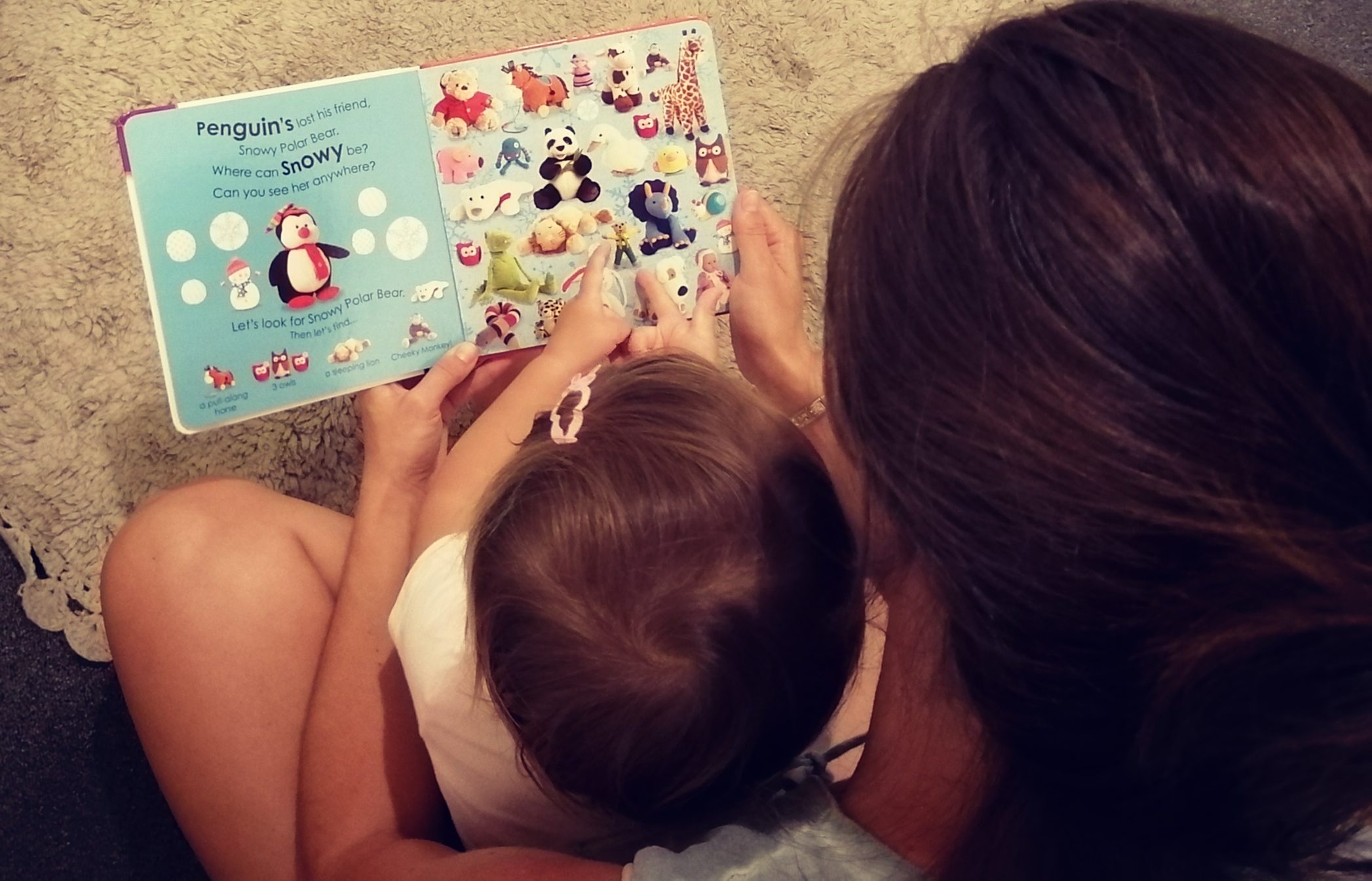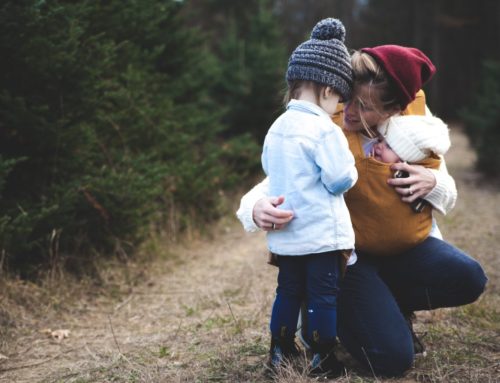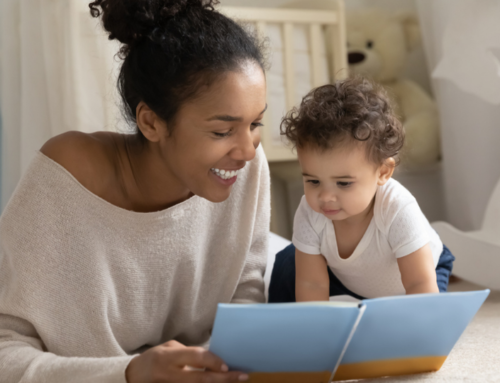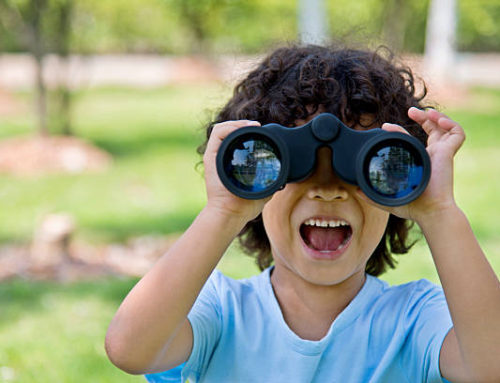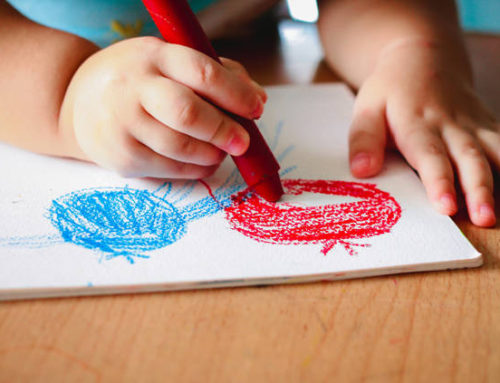Language is more than just verbal communication. It is also the ability to express ourselves, to respond and understand when someone is trying to communicate with us. Language development is a crucial part of the child’s overall development. It supports your child’s ability to communicate, express and understand feelings. It also aids in problem solving, developing, and maintaining relationships. The basis for literacy – learning to read and write is grounded in learning to understand, use and enjoy language.
A baby’s communication skills develop drastically during the first year of life. Here is an indication of the sequence of this language development:
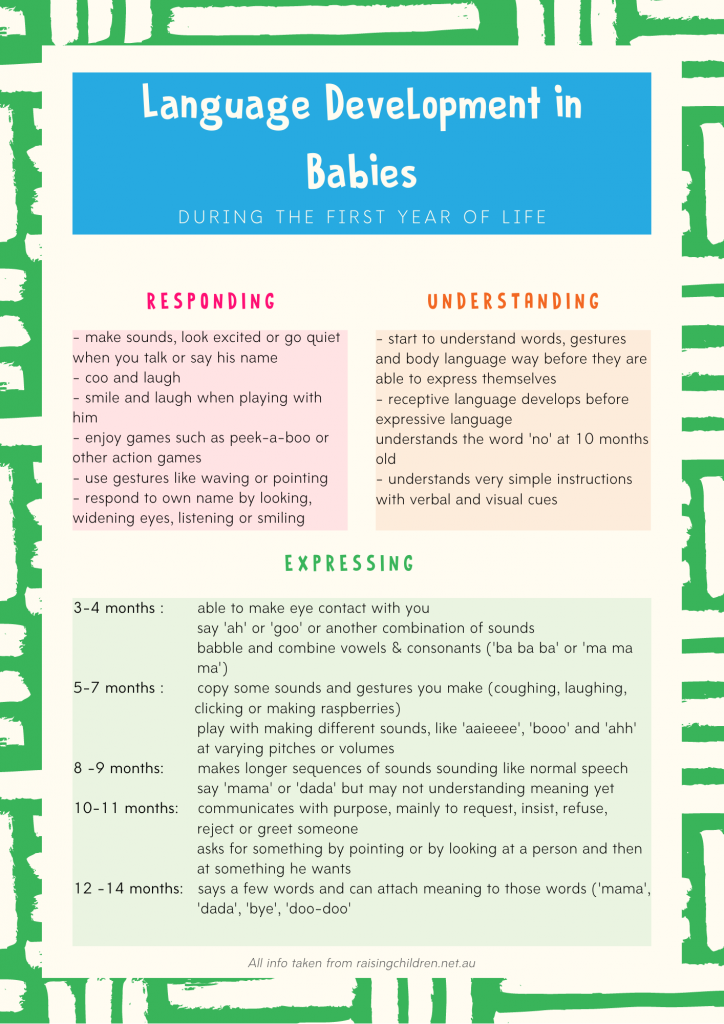
From 12 to 18 months, toddlers start to associate meaning to the words that they are saying. From this point on they often experience a surge of language development and keep adding more and more words to their vocabulary. At this stage, they can understand far more than they can express verbally and are able to follow simple instructions as well.
From 18 to 24 months, toddlers are able to put two words together into short sentences. They will understand much of what you say, and you should start to be able to understand what they are saying to you (most of the time).
Here is a more detailed description of language development from 12 to 18 months:
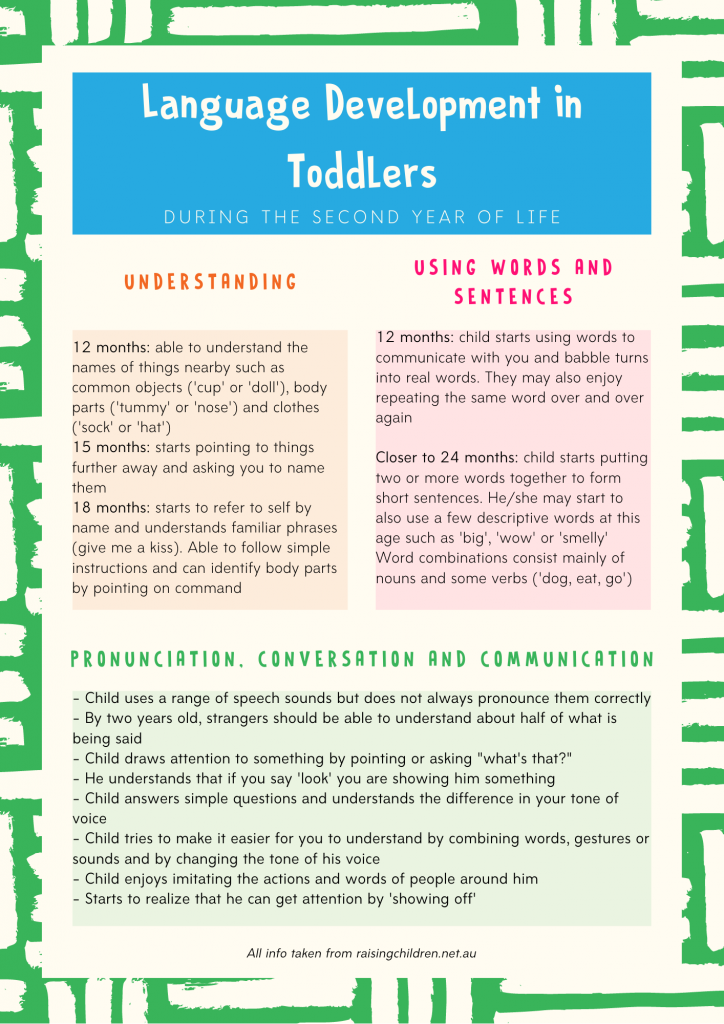
NB! Language develop varies greatly from child to child, however if your toddler has not started saying some words by 18 months, it may be a good idea to talk to your GP or consult a speech therapist and audiologist to assess your child’s speech and hearing ability. Often a lack of hearing can greatly influence a child’s language development without their parents even knowing it. It is for this reason that an annual hearing test is essential in all children from birth to 8 years old.
From 2 to 3 years old, your child’s vocabulary will expand rapidly and may learn new words every day. Their receptive language is incredible, and they are able to understand more words than they can express. Your child starts moving to using three or more words in a sentence such as “Mommy get in car”. Your toddler at this stage should understand one and two step instructions as long as they relate to things they already know. They also begin to answer questions from adults about ‘who’ ‘what’ and ‘where’ but may not understand ‘why’ and ‘how’ questions yet.
Your toddler will be able to know from the tone of your voice whether you are happy, angry or affectionate. Your child may be able to ask for help at this stage if he is struggling with something. He will also understand household routines and may be able to guess what’s happening next.
By age three, your child will be able to use most of the speech sounds in his words by may still pronounce them differently from adults. Your child may also get the hang of speaking in turn and may be able to have a short conversation with you or even make up a simple story with your help. Your child will be able to talk and play by age three, giving voices to toys and will also start learning to share toys and take turns. You may hear your child experimenting with language through rhyming, singing and listening to stories.
How to encourage early language development in babies and toddlers:
- Talk about things that interest the child (follow their lead)
- Give your child a turn to talk and wait for their response
- Copy your baby when he babbles and let him babble back to keep the conversation going
- Respond to your child’s attempts to communicate
- Repeat and build on what your child is saying
- Talk about what is happening in everyday life and in your daily routine
- Talk about things in the past and future
- Reading and sharing lots of books and stories together
- Link what is happening in books to the child’s daily life
- Encourage talking by chatting about interesting pictures in books
- Point to words as you say them to show the link between written and spoken words
Language development and play
The most wonderful way to stimulate language development in babies and toddlers is through play. During play, a child’s reality is suspended, and this allows them more confidence and freedom to communicate and express themselves openly in a secure environment. Singing, reading, rhyming, musical instruments, arts/crafts and pretend play are great ways to enhance a child’s language skills. Guided play is crucial to language development – we as adults are encouraged to follow the child’s lead but also to prompt and ask questions, stimulating language expression and understanding. Through role play and pretend play we can encourage the learning of social norms such as sharing, turn taking, assertiveness and asking for help. Pretending to be at the shops buying groceries, making food/baking, playing with dolls and making music are all lovely ways to naturally encourage children to express themselves and understand reciprocal communication.
Here are some Nanny ‘n Me inspired activities used as a means to enhance language development:
